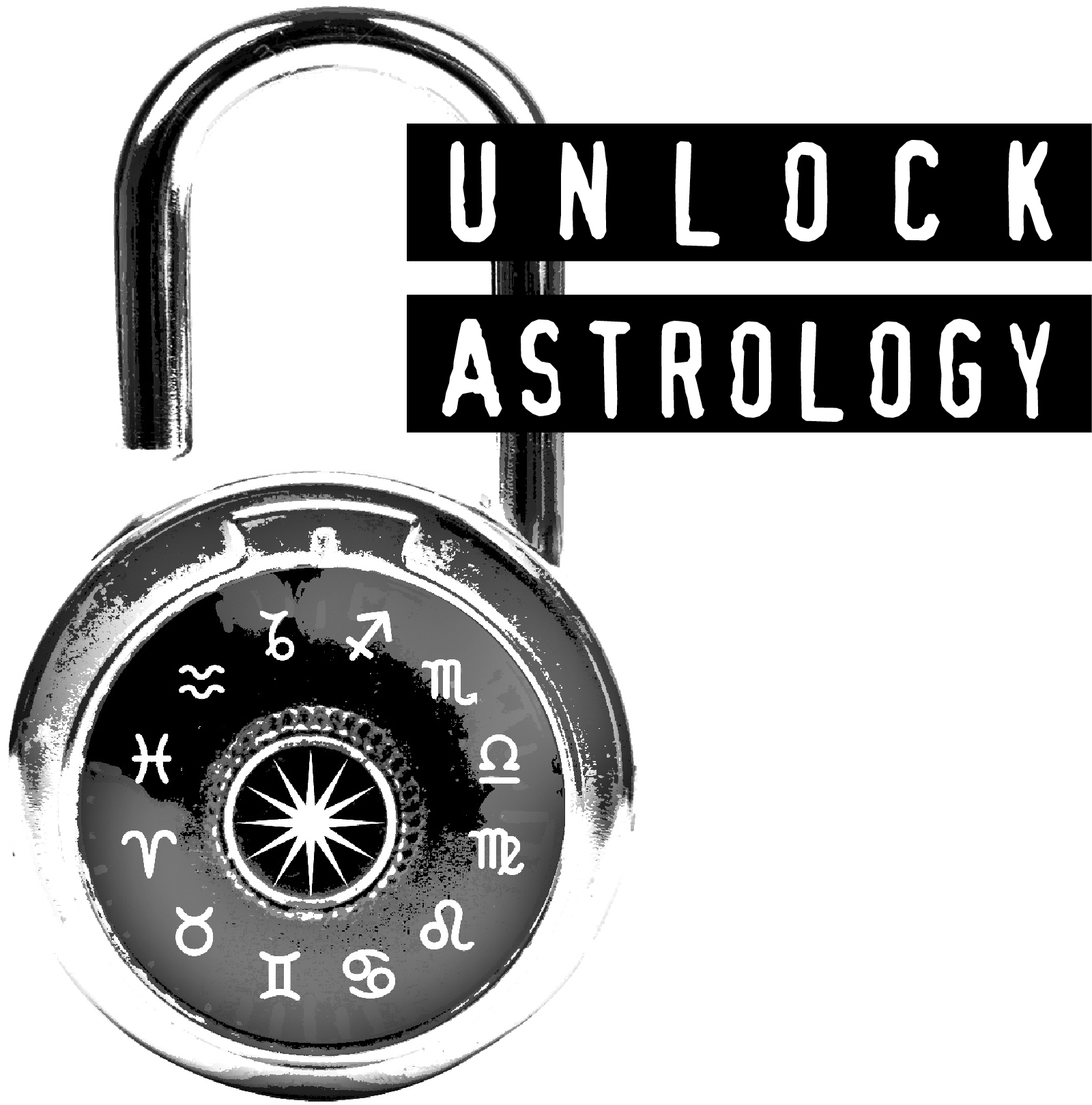Learn More About Unlocking Your Astrological Chart
Although an astrologer has trained and studied to be able to analyze and discuss your chart with you, it’s also good to educate yourself. When you understand more about astrology, you share a language with an astrologer that allows you to probe deeper, to ask clearer questions and to form your own perspective on how your chart works in your life. So I’m going to suggest websites and books to jump start your astrology education.
I also would suggest taking public and private classes with me. I have over 20 years as an educator and trainer, with 10 of those years dedicated to teaching astrology, including through my own Astrology Career Institute. You can find more info on those classes and lectures here at unlockastrology.com.
Annotated Website Log
This is my favorite astrology site in the whole wide world (web). It provides more a classical or traditional understanding of astrology with an array of articles, interviews and breakdowns of all things astrological—from signs, planets, aspects, and houses to other forms of astrology.
2. Astro.com
There’s a lot to love about this site. Inspired by the work of prolific psychological astrology author Liz Greene, you can do your chart there. In fact, many professional astrologers use this site to construct charts, replete with thousands of asteroids and other ways to “spice” up making charts. The site also has a great number of articles, horoscopes, and reports to browse or purchase.
3. Alabe.com
From one of the main distributors of Solar Fire, a top astrology software program that I use and distribute as well. You can make charts there, buy software, get software updates (if you have a version of Solar Fire), and there are articles there too.
A great diversity of articles on a range of astrology topics, like explaining the planetary positions by sign or house and planetary combos between people (commonly called synastry). It’s a great site to get comfortable with astrological lingo.
5. Khaldea.com
When I decided to accelerate my studies in astrology over 10 years ago, this site and its insights, mostly culled from the work of late astrology great Dane Rudhyar, nearly put my eyes out of their sockets. It’s great to get a deeper understanding of Mercury’s and Venus’ cycles and for understanding the psychological basis for how astrology works.
Fixed Stars are a very much underused, understudied aspect of astrology. With this study, you focus on particular stars that once were believed to be stationary (i.e. fixed) rather than moving like the planets. However, it’s hard to find a good site that doesn’t describe these fixed stars as if you’re doomed for just knowing about them. Marina E. Partridge does an excellent job of giving a more profound mythological, spiritual and psychological understanding of these arcane astrological signatures.
A news organization dedicated to informing the general public and media on the power and believability of astrology as a serious field of study. This is where to send skeptics about independent research, studies and media stories on astrology.
The only international astrology organization of its kind. This organization hosts astrological conferences and webinars, featuring some of the most stellar astrologers from around the world. If you join, you receive premium astrology journal articles and can start a worldwide-recognized certification program in astrology as well.
Started by my good friend and colleague Jeff Kishner in 2008, Sasstrology is an online magazine (or blog) bringing you the best articles on the astrology of sex, love and relationships by a variety of authors. If you want to only focus in on these topics while learning astrology, this is THE place to visit regularly.
One of my favorite podcasts is by my colleague Chris Brennan. I’ve been a fan of his work for a long time. What I like most about his podcast is that Chris has something for nearly everybody with the diversity of guests from the international astrology community. You’re bound to learn something profound and interesting about astrology if you listen to a podcast.
Top 5 Astrology Books
These are the top five books I recommend for any student at the beginning or even intermediate stages of learning astrology. I am more of a traditional astrologer, meaning that I favor astrology ideas and philosophies from before the 20th century. Most of these books are similar, in some form or fashion, to how I both practice and teach astrology. This doesn’t mean I don’t use any modern planets or techniques. On the contrary, I do; however, I give greater emphasis to the traditional techniques and views of astrology. For example, I don’t use the modern rulers of Scorpio (Pluto), Aquarius (Uranus), or Pisces (Neptune) in my teaching or analyses; but I do use those planets as signifying aspects of human life and consciousness.
Isabel Hickey’s Astrology: The Cosmic Science is perhaps the only real exception on this list. She uses modern rulerships for signs and isn’t very traditional at all. But I do appreciate her spiritual sensitivity and it is the only book from when I first started studying astrology 20 years ago that I still reference on occasion.









